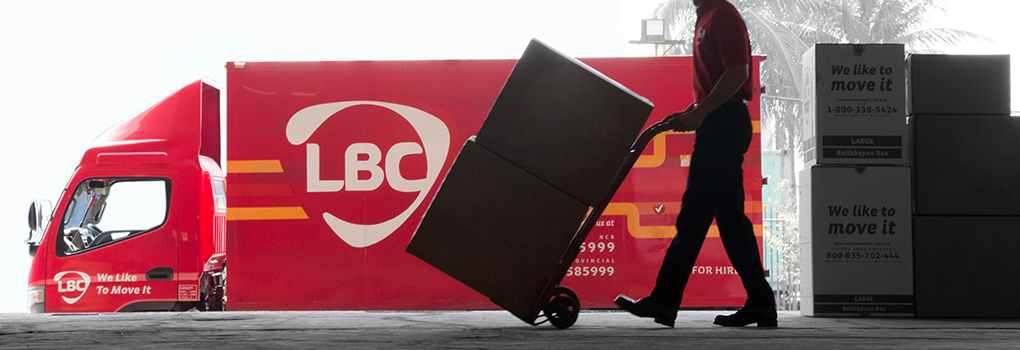Economic

We know that if we run our business in the right way, our economic success can contribute to achieving No poverty (SDG 1), Peace, justice and strong institutions (SDG 16) and Partnerships for the goals (SDG 17).
Our impact
Growth is our responsibility to the Global Filipinos. Founded in 1945 as a brokerage and air cargo agent, we pioneered express delivery and cargo shipping and 24-hour door-to door delivery in the Philippines. Today, we are the most trusted courier, cargo and logistics, and remittance service provider of the Global Filipino with over 20 million customer base globally. We are present in 30 countries worldwide and in 1,397 branches across the Philippines.
By moving lives, businesses, and communities, we have an important role in supporting sustainable economic development for our stakeholders. Specifically, our financial performance impacts various stakeholders such as our employees, business partners, service providers, suppliers, shareholders, as well as wider groups including the government and the society.
Our management approach
Our business decisions and growth aspirations are guided by sustainable practices and full compliance with laws and regulations, and internal governance principles.
To deliver on our financial targets, our Board oversees the development, review, approval, and monitoring of our business objectives and strategies. They also establish effective performance management framework that ensures that our performance is at par with the standards set by the Board and management.
One such strategy is to protect our competitiveness. Back in 2011, we shifted from simple compliance that was grounded on a set of policies and processes to a more forward-thinking approach focused on identifying and addressing the risk and opportunities that the business may face. This work plan was built around earning an International Organization for Standardization (ISO) certification for quality management to highlight our brand’s focus on quality, reliability, and customer satisfaction. We then expanded our approach to include other aspects of the business such as Central Exchange, Warehousing, Remittance, and Payment Solutions.
Over the years, that same quality standard, which uses the Plan-Do-Check-Act Framework, has equipped us with a robust system to ensure consistency across the enterprise. In 2019, we celebrated our 9th year of being certified with the ISO 9001:2015 Quality Management Standard, becoming one of the few logistics companies in the country with the longest-running ISO certification for quality management. We also received the most number of sites certified with this standard. Through our ISO certification, our stakeholders are assured that quality is integrated into every aspect of our operations—our brand attributes, management supervision, and professionally and technologically equipped employees—to meet and go beyond our customers’ expectations.
Another recent and ongoing initiative is our digital transformation. Introduced in 2017, our strategy is aimed at accelerating business activities, processes and competencies that will, in turn, impact the stakeholders in strategic and meaningful ways. Under our digital transformation, we aim to improve internal performance, partner relationships, and expand reach across different business segments. Specifically, we intend to:
- Further develop the first mile to make us accessible for pick-ups for the retail market, and small-corporate accounts (MSMEs);
Set up our cross-border operations to capture the e-commerce market at its origin, making LBC an end-to-end logistics service provider; - Partner with other logistics service providers through crowdsourcing, making our pick-up and delivery operations “burstable”;
- Utilize crowdsourcing to fulfill the need for surge of volume, thus providing a cost-effective solution to demand;
- Expand our Returns Services to Reverse Logistics through reselling, liquidation or disposal of returned items;
- Expand money transaction through digital currency solutions, allowing peer-to-peer payments or C2B payments; and
- Ensure improved efficiencies in our hubs.
Risks and Opportunities
A significant segment of our business activities and assets are in the Philippines. As such, we face risks associated with the country, including the performance of, and impacts of global conditions on the Philippine economy. It also means we are subject to Philippine laws and regulations, and any changes in government policies could adversely affect our operations and profitability.
We view sustainability program and reporting as an opportunity to upgrade and expand our system of corporate governance—to monitor our performance and to effectively manage key business risks. With this in mind, the succeeding steps include the formalization of an infrastructure that will address our current data gap. More details about our Procurement Practices and Policies will be reported next year.
Our climate-related risks and opportunities
We are mindful that an occurrence of natural disasters, such as typhoons, earthquakes, fires, floods, and similar events, could adversely affect our business, financial condition, or results of operations. To safeguard against unexpected interruptions due to these risks, we have established business continuity plans and procedures related to information technology, transportation for our logistics business and funding insufficiencies for our remittance segment.
Within the organization, we have also formed a 25-man team, dubbed the LBC Heroes, who can volunteer to respond to emergency situations and assist affected communities strategically. Coming from our various business units from the frontlines to executive management, our LBC Heroes are provided with a fully-equipped Emergency Response Vehicle (ERV) and have undergone training with the Philippine Red Cross and Philippine Coast Guard, emphasizing a critical role of public-private synergy in times of disasters. During storm warnings, the team is deployed as in the case of category 4 typhoon Lando, where they were able to provide onsite medical assistance for over a hundred members of Barangay San Roque in Cabanatuan City. The team also joined the Feast of the Black Nazarene and during the Pahiyas Festival in Lucban to provide medical emergencies and basic first aid.
Anti-corruption
Our impact
Moving money means taking full responsibility of being compliant with local and international economic regulations. It requires deep knowledge, robust processes, and reporting controls to protect one’s financial systems from being misused by individuals and organizations involved in money-laundering and other serious crimes.
In doing our part to assist regulators, we submit Suspicious Transactions Reports (STR) to the Anti-Money Laundering Council (AMLC). In 2018, we submitted a total of 1,430 STRs—a number that may be considered low relative to the scale of our business. Of the STRs we filed, 99.88% were deemed to have High Value for investigation purposes, reflecting the reliability of our parameters in transaction monitoring. From 2015 to 2018, our top five reasons for filing STRs with AMLC are 38% Structuring or evading CTR reporting; 25% Fraud or Swindling; 15% Customer improperly identified; 14% Transaction no underlying legal or trade obligations; and 2% drug-related.
Our management approach
Our strong compliance and anti-money laundering programs protect our customers and our business from illegal transactions and malicious use of our systems. Guided by our policies and framework, our compliance team monitors domestic and international remittance transactions based on risk and materiality to identify which would require further investigations.
We have a regular reporting mechanism in place for suspicious transactions, activities, and matters. When there are reasonable grounds to suspect that a transaction may be an illegal activity or money laundering, we file reports with the relevant financial intelligence units of the various jurisdictions where our remittance business operates. In the Philippines, this is the AMLC which has recognized our transaction monitoring with a high rating in its AML Risk Rating System as with our good governance. AMLC is a public-private partnership that promotes cooperation and coordination to effectively prevent, control, detect and investigate money laundering, terrorism, and financing of terrorism in the country.
